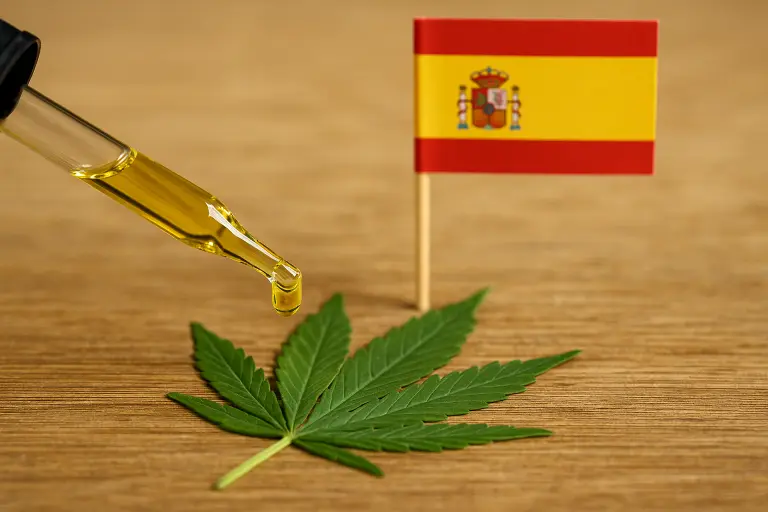After years of debate, petitions, and public pressure, Spain has officially approved the use of medical cannabis.
The new regulation, passed in October 2025, marks a turning point in the country’s healthcare policy and opens the door to a new era where science, compassion, and responsible regulation go hand in hand.
🌿 A long-awaited change
The discussion around medical cannabis in Spain isn’t new. For more than a decade, thousands of patients suffering from multiple sclerosis, refractory epilepsy, chronic pain, or the side effects of chemotherapy have demanded legal access to safe, standardized cannabis-based treatments.
Until now, many were forced to rely on the black market or home-grown plants, risking prosecution and with no guarantees about the quality or content of the product.
This new decree finally changes that reality.
⚕️ What exactly does the new law allow?
The measure authorizes the medical use of cannabis under prescription and only within hospital settings, with the possibility of extending distribution to hospital pharmacies in a later phase.
This means patients will be able to access standardized cannabis extracts, oils, or capsules, prescribed and supervised by medical specialists.
Key points include:
Medical and therapeutic use only
Full sanitary control from cultivation to dispensing
Production authorized by the Spanish Medicines Agency (AEMPS)
Mandatory medical supervision and follow-up
Specific training for healthcare professionals on cannabinoids and their applications
💊 Which conditions can be treated?
The decree establishes an initial list of conditions for which cannabis-based treatments have already shown efficacy:
Chronic oncological or neuropathic pain
Spasticity linked to multiple sclerosis
Chemotherapy-induced nausea and vomiting
Refractory epilepsies (e.g., Dravet or Lennox-Gastaut syndromes)
Loss of appetite and cachexia in patients with HIV or advanced cancer
Experts expect this list to expand in the coming years to include sleep disorders, anxiety, arthritis, and more, as clinical research continues to grow.
🔬 Science, evidence, and public health
Unlike a decade ago, there’s now a vast body of peer-reviewed research confirming the therapeutic value of cannabinoids. Compounds like THC and CBD act on the endocannabinoid system, a network of receptors in the human body that regulate pain, appetite, inflammation, and sleep.
Far from the stigma, medical cannabis has proven to be a valuable complementary therapy.
Countries such as Germany, Canada, Portugal, and Israel have shown that regulation improves quality of life, reduces opioid dependency, and allows for better medical oversight.
🇪🇺 Spain aligns with Europe
With this decision, Spain joins the group of European nations that have legalized medical cannabis—though its model is more conservative.
Germany has allowed prescriptions in regular pharmacies since 2017; Italy produces medical cannabis through its military pharmaceutical institute; and Portugal already dispenses it via medical prescription.
Spain’s hospital-based model is seen as a cautious but strategic first step, designed to collect clinical data, train professionals, and build a solid, evidence-based framework before expanding access further.
🌸 The role of activism and patient advocacy
This milestone wouldn’t have been possible without the tireless work of patient associations, cannabis clubs, and scientific advocates who kept the conversation alive despite political resistance.
Thanks to their efforts, over 80 % of Spaniards now support medical cannabis legalization, according to recent polls.
This social shift has been essential in pushing lawmakers to act—and in changing the cultural perception of cannabis from taboo to therapeutic.
🌍 Economic and scientific opportunities
Beyond health, the approval opens new doors for Spain’s biotech and agricultural sectors.
With its ideal climate and agricultural expertise, the country could soon become a European leader in medical cannabis cultivation and research.
Universities and startups are already developing new cannabinoid profiles, green extraction methods, and exploring applications in pharmacology, cosmetics, and nutrition.
🤝 One step, not the final destination
While the news is widely celebrated, activists remind us that this is just the first chapter.
Many issues remain to be addressed:
Expanding access beyond hospitals to pharmacies
Recognizing controlled medical home-growing
Including more medical conditions
Ensuring fair pricing and public health coverage
The ultimate goal is a comprehensive, humane regulation that secures access for those who need cannabis most.
🌿 A victory that smells like the future
Spain’s legalization of medical cannabis is more than a medical policy—it’s a sign of social maturity.
It acknowledges that compassion and science must come before prejudice.
This is the beginning of a new era where cannabis is finally recognized for what it truly is: a plant that heals, connects, and inspires—when used responsibly and regulated wisely.




